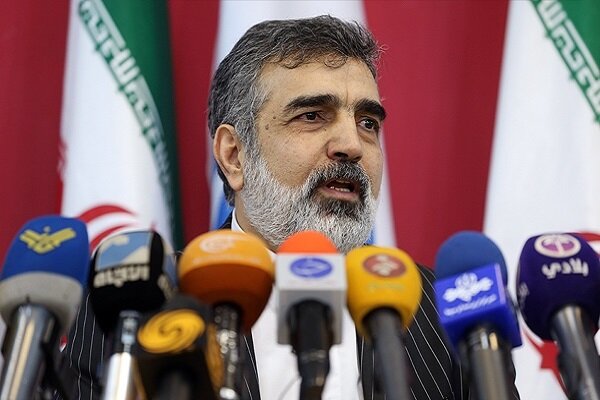Iran says to scale back nuclear commitments to create balance

TEHRAN - Behrooz Kamalvandi, spokesman for the Atomic Energy Organization of Iran (AEOI), has said that if the Europeans refuse to uphold Iran’s rights under the 2015 nuclear deal, Tehran will continue to scale back its commitments to “create a balance”.
“If the Europeans uphold our rights under the JCPOA [the Joint Comprehensive Plan of Action, we will implement our commitments, otherwise we will scale back our commitments to create a balance,” he told ICANA in an interview published on Wednesday.
On May 8, Iran announced a partial withdrawal from some aspects of the pact, saying that the country would no longer adhere to some of the limits on its nuclear activities. It also threatened to step up uranium enrichment if an agreement is not made within 60 days to shield it from the sanctions’ effects.
Kamalvandi said that Iran will not extend the 60-day deadline.
He added that the next steps will be taken according to the scheduled plan.
Talking to reporters at the Arak heavy nuclear reactor on Monday, Kamalvandi said Iran’s stockpile of enriched uranium will exceed 300 kilograms by June 27.
“From today the countdown has started and it means that by Tir 6 (June 27) the production of enriched uranium will exceed the 300 kilograms.”
After June 27, Kamalvandi said, Iran will speed up its uranium enrichment activities beyond 3.67 percent if the other sides don’t take a practical step.
“After surpassing 300 kilogram, we will increase the speed of producing enriched uranium above 3.67 percent,” Kamalvandi stated.
He said that the second phase of reducing JCPOA commitments will start when Iran’s top officials decide, noting Europeans have still time to save the agreement.
Iran will not wait more if the Europeans delay taking practical actions to preserve the JCPOA, he reiterated.
“The Europeans should know that if the first phase took time, the second phase will take one or two days, especially increasing enrichment to over 3.67 percent,” he said.
Kamalvandi said that the move would be reversed "once other parties live up to their commitments."
Under the JCPOA, Iran agreed to put caps on its nuclear work in exchange for termination of economic and financial sanctions. However, Trump unilaterally pulled Washington out of the nuclear deal in May 2018 and ordered reimposition of sanctions against Iran. The first round of sanctions went into force on August 6 and the second round, which targets Iran’s oil exports and banks, were snapped back on November 4.
Also, on April 22 the U.S. announced that Washington has decided not to extend waivers allowing major importers to continue buying oil from Iran. The waivers ended on May 2.
Talking at a conference of Asian leaders in Kyrgyzstan on Saturday in which the Russian and Chinese presidents were also present, President Hassan Rouhani said Iran cannot remain committed to the nuclear deal unilaterally.
China, Russia, E3 countries (France, Germany and Britain) and the European Union are the remaining signatories to the JCPOA.
NA/PA
